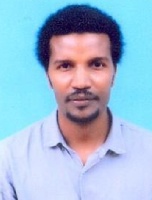Biography
Siyum Adugna Mamo is a PhD fellow joining the Conflict Research Group at the Department of Conflict and Development Studies, Ghent University, Belgium. An ISS alumnus who has got his master’s degree in Development Studies focusing on Conflict and Peace Studies, Siyum has teaching experience in Ghent University, Belgium. He has also been teaching in Jimma University, Ethiopia. His research interest falls within the broader areas such as collective action, contentious politics, rural youth, violent democracy, populism, and agrarian change and transformation.
ResearchGate https://www.researchgate.net/profile/Siyum-Mamo
Abstract
Violent democracies and the future of rural youth: insights from Ethiopia
New democracies in the Global South are periodically beset by violence. Violence is therefore inherent in new democracies, hence, violent democracy. Using autoethnographic research approach, the study unpacks how the rural youth foresee their future and how this shapes their relationship with the regime in Ethiopia. Ethiopia has opened its democratic political environment after the ascension of Abiy Ahimed in 2018. There was an optimism for peaceful transition. However, the country descended into a wave of violence shortly after his government took office. The rural youth (Qeerroo) in Oromia region started to turn away from him. The study shows that the youth stand at the center of the violent protests which has been on the rise in Ethiopia. The youth, who expected a better future, saw that it was only the political elites who have access to state resources. They started creating patronage with the political elites who were ready to allocate rents to produce violence. The elites and the youth later star ted to use violence as an instrument to access state resources. However, the violence came as an added threat to the rural poor who have already suffered from the neoliberal narratives of efficiency and large-scale agriculture which led the rural poor to face the harshness of capitalism through depeasantisization and dispossession. Thus, there needs to be a policy framework that incorporates the youth in the labor force. So that they can contribute to the economy, and this furthers their role in the process of state building.
Key words: Ethiopia, Global South, rural youth, peasants, violent democracy
Affiliation: Ghent University, Belgium

